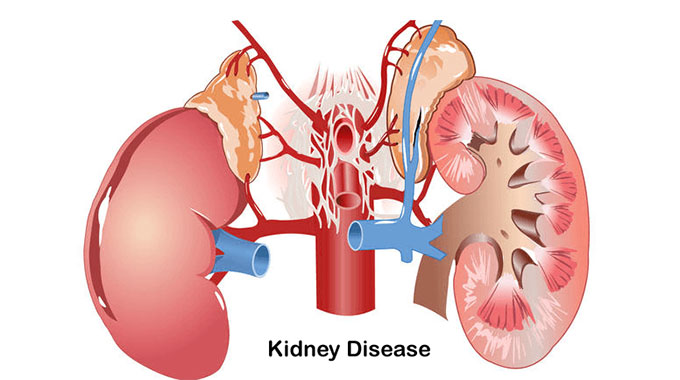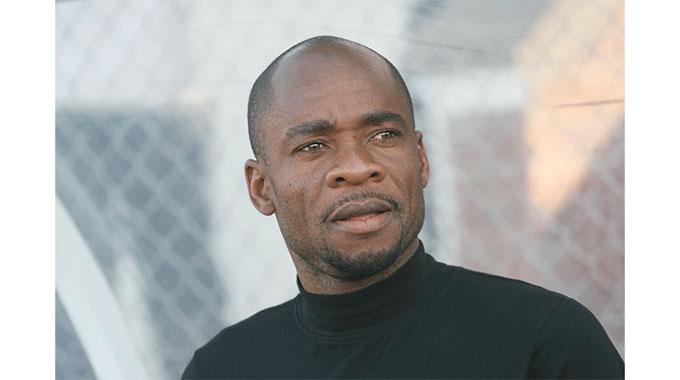Kidney disease: A silent killer that demands affordable treatment for all

Rumbidzayi Zinyuke-Health Buzz
Last week, the world celebrated World Kidney Day and it brought to the fore painful stories about people whose lives have been affected profoundly by renal diseases.
World Kidney Day brings global attention to the importance of kidney health.
The day seeks to raise awareness about the various kidney diseases that exist and how they can affect one’s life.
This year’s theme was “Kidney health for all – Advancing equitable access to care and optimal medication practice”, a call to improve access to kidney treatment for all.
Kidneys are one of the most important organs and play a critical role in the body.
As the body’s filtering system, they help control water levels and eliminate wastes through urine.
They also help regulate blood pressure, red blood cell production, and the levels of calcium and minerals.
But sometimes the kidneys may not function properly due to various reasons ,leading to a kidney disease.
Kidney disease (renal failure) is short-term or permanent damage to the kidneys that results in loss of normal kidney function.
Acute kidney disease starts suddenly. In some cases, it may be reversed and the kidneys can work normally again.
Chronic kidney disease gets worse slowly over at least three months. It can lead to permanent kidney failure.
Statistics show that millions of people die each year because they do not have access to affordable treatment.
According to the 2010 Global Burden of Disease study, chronic kidney disease was ranked 27th in the list of causes of total number of deaths worldwide in 1990, but rose to 18th in 2010.
Presently, kidney disease ranks as the eighth leading cause of death, and if left unaddressed, it is projected to be the fifth leading cause of years of life lost by 2040.
This rise in mortality due to kidney disease is definitely worrying.
Over 2 million people worldwide currently receive treatment with dialysis or a kidney transplant to stay alive, yet this number may only represent 10 percent of people who actually need treatment to live.
But for kidney patients in low to middle-income countries, treatment with dialysis or kidney transplantation creates a huge financial burden for the majority of the people who need it.
Many people cannot afford it, resulting in the death of over 1 million people annually from untreated kidney failure.
Zimbabwe is in this bracket.
Parirenyatwa Group of Hospitals attends to nearly 50 dialysis patients daily but this is not nearly enough as more people require this service.
Owing to the overwhelming demand, the facility experiences regular breakdowns of machines thus disrupting the provision of service to those in need.
According to the Ministry of Health and Child Care, Zimbabwe records approximately 1 000 cases of kidney failure every year but only 700 have access to dialysis.
Experts say the rise of chronic kidney disease cases in Zimbabwe could be attributed to an increase in people with hypertension, diabetes, and an ageing population among many other causes.
Although the World Kidney Day passed, it remains important to highlight the importance of shifting focus towards achieving optimal kidney care for all.
It is thus important to recognise that kidney disease can have a detrimental effect on the health and life of all, young and old.
Hence the need for all to know about it for them to be able to recognise it early.
According to experts, in the early stages of chronic kidney disease, one may have few signs or symptoms and can fail to realise that they have kidney disease until the condition is advanced.
These signs and symptoms may develop over time if kidney damage progresses slowly resulting in loss of kidney function which can cause a build-up of fluid.
Depending on how severe it is, loss of kidney function can cause symptoms such as vomiting, loss of appetite, fatigue and weakness, sleep problems, urinating more or less, decreased mental sharpness, muscle cramps, swelling of feet and ankles, dry, itchy skin, high blood pressure (hypertension) that is difficult to control, shortness of breath, if fluid builds up in the lungs as well as chest pain, if fluid builds up around the lining of the heart.
There are also some diseases and conditions that cause chronic kidney disease including Type 1 and type 2 diabetes, high blood pressure, prolonged obstruction of the urinary tract from conditions such as enlarged prostate, kidney stones and some cancers and recurrent kidney infection.
While people always trust medications to make them feel better whenever they are ill, taking pain relievers such as aspirin, ibuprofen, tylenol among others for a long time may lead to kidney damage.
Obesity and smoking could also be risk factors for kidney disease.
As mentioned above, dialysis may be the only way for many patients to live with the disease, unless they can get a kidney transplant. But for many in Zimbabwe, transplants are not an option as they can easily afford.
So dialysis helps to keep their body in balance by removing waste, salt and extra fluids from the blood to prevent them from building up in the body.
It often involves diverting blood to a machine to be cleaned.
A person on dialysis can actually live a long and comfortable life.
So it all comes back to the cost of this life saving treatment. It should be affordable for all!
A research paper published recently by 13 senior leaders from the African Association of Nephrology, called for concerted efforts to implement effective strategies to mitigate the escalating incidence of chronic kidney disease across the continent.
It stressed the critical importance of early detection and timely intervention in CKD to prevent kidney failure and save lives.
Recognising the challenges current diagnostic methods pose, the authors proposed practical alternatives such as dipstick detection for proteinuria, a cost-effective approach to screening which offers a viable solution to overcome barriers to diagnosis and improve access to care for underserved populations.
The paper also advocated for a paradigm shift in how CKD is approached and managed in Africa.
It called for a comprehensive and feasible clinical approach to screening, diagnosis and treatment, emphasising the need for equitable access to care and optimal medication practices.
Hence for everyone to access ‘care and optimal medication’, as this year’s theme suggests, it is important for African countries to have the political will, build capacity of healthcare workers and patients, have affordable pricing to treatment and care for the achievement of kidney health for all in Africa and beyond.
Feedback: [email protected]








Comments